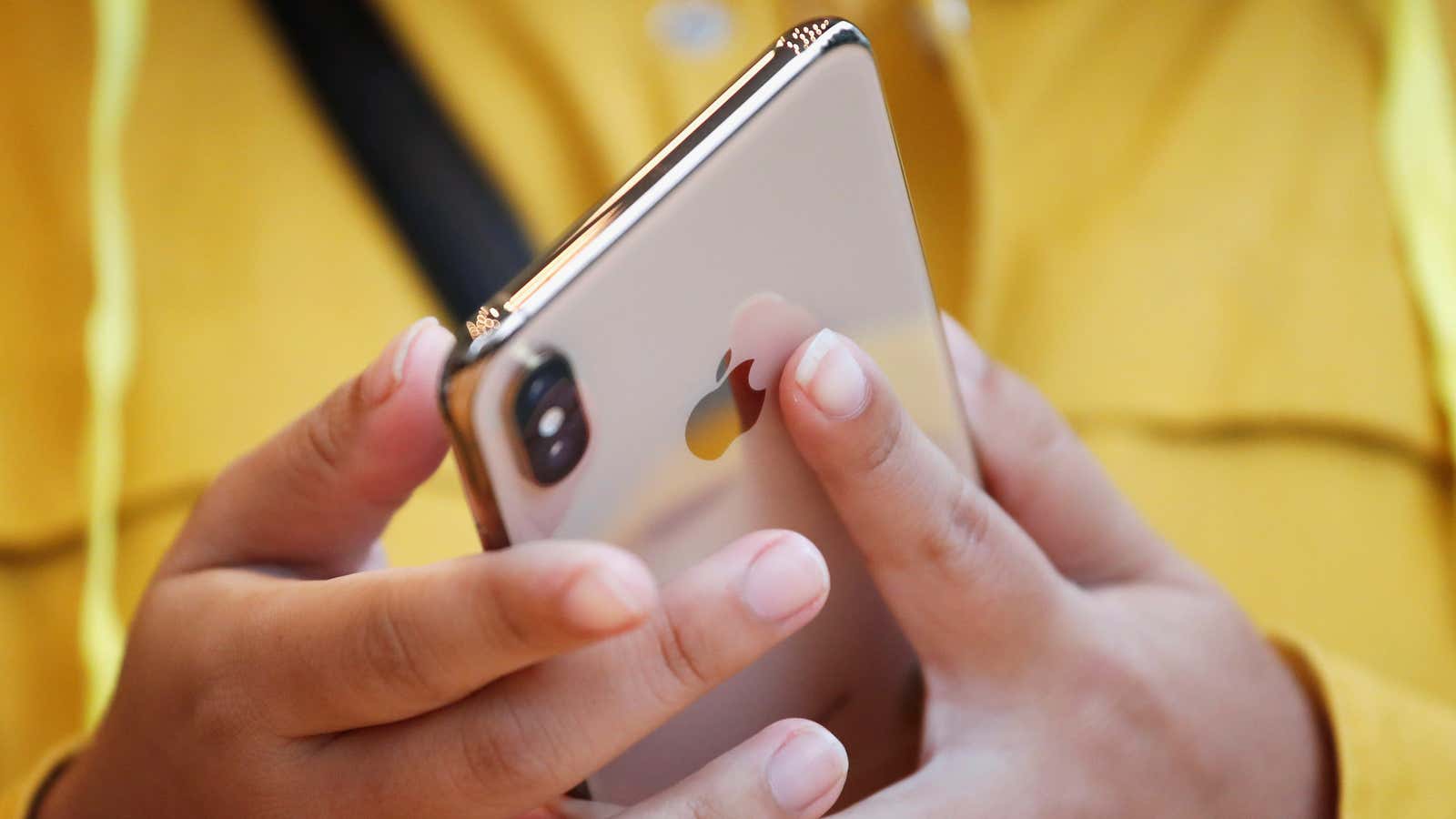While some of technology’s other giants were getting ready to extol the virtues of their cloud-computing businesses, Apple decided it was a prime moment to announce that it had just purchased a large chunk of Intel.
The iPhone maker said July 25 that it was buying Intel’s smartphone chip business for $1 billion. It would be taking on roughly 2,200 Intel employees (presumably moving them from down the road in Santa Clara, California, to its Cupertino mothership), and adding to its wireless-technology patent trove, which will now stand at 17,000 innovations.
Earlier this year, Intel more or less admitted defeat to Qualcomm and other chipmakers when it announced it would be leaving the nascent 5G smartphone chip business to focus on developing next-generation technology for chips in computers and internet-of-things devices. It seems that Apple has lightened the company’s load by taking over this business from them.
“This agreement enables us to focus on developing technology for the 5G network while retaining critical intellectual property and modem technology that our team has created,” Intel CEO Bob Swan said in Apple’s release. Swan also rationalized the sale today by telling Yahoo Finance he didn’t see a “path to profitability” for Intel with its smartphone chip business.
In April, Apple and Qualcomm dropped the bitter lawsuit the two companies had been waging for years, agreeing to settle out of court and sign a six-year licensing deal.
It’s unclear where the Intel unit will fit into Apple’s plans in the short term, given the Qualcomm deal, and Apple was as cryptic as ever about its plans in its release. “Apple is excited to have so many excellent engineers join our growing cellular technologies group, and know they’ll thrive in Apple’s creative and dynamic environment,” said Johny Srouji, Apple’s vice president in charge of hardware. “They, together with our significant acquisition of innovative IP, will help expedite our development on future products and allow Apple to further differentiate moving forward.”
What does this mean for the average iPhone buyer?
For now, probably not much. Apple had used Intel for the modems in its iPhone XS phones, mainly because of the lawsuit with Qualcomm, but with the agreement signed, it seems likely Qualcomm chips will be gracing the company’s phones for the near future.
Beyond that, Apple will have more direct control over the chips that it needs to build its phones, and other mobile devices, down the road. This could, in theory, reduce costs through operational efficiencies and not having to rely on as many outside vendors. But Apple being Apple, it will probably result in the company charging you more for luxury, exclusive chipsets.
